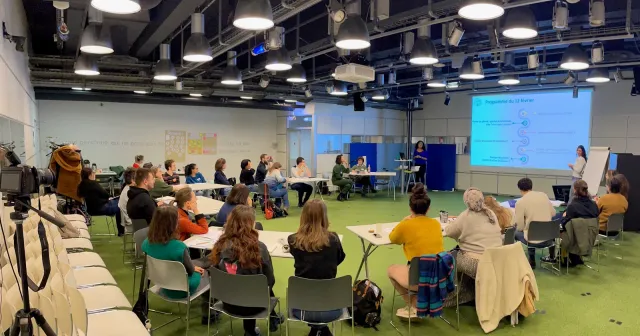Informal Language Learning

Education is carried out as formal, informal, nonformal and self directed learning. While formal learning involves planned program at schools, informal learning incidentally occurs in the natural living areas which are out of school such as home, theatre, cinema, street, park, work, museum and library. These learning environments supply many sources from real life; newspapers, magazines, books, e-books, websites, movies, Tv programmes, Youtube videos, podcasts, social media sharings and comments, talking with a foreigner or a native speaker, e mail messages from a company, road maps, traffic signs, food labels are some of authentic materials that help learning in a natural way.
According to Maden and Dinçel (2015), informal learning is exactly a lifelong learning approach. Informal learning is a process in the direction of needs and instinct which includes making dialogues in real life circumstances, upskill experience and discovering, recognizing special and social environments and taking advantage of it, incidental learning, gaining wanted and unwanted but necessary behaviours of real life.
Failure in teaching of foreign language that is grammar focused at schools proves the need of different learning and teaching ways. I strongly believe that it is a good way to overcome difficulties in learning language because it aims to improve language skills by using the language in real life and increases proper language use level. Moreover, informal learning raises learners’ cultural awareness about different countries that is almost impossible at school in especially monolingual countries like Turkey.
I think informal learning is the best way to learn a foreign language in terms of being interactive, participant, enjoyable. Informal learning constantly supports language skills in regard to the needs of daily life. Therefore, it enables us to keep up with the changes on language easily. Yaman (2018) says that today, technologic developments provides to make more practice in the foreign language by voice call or video call with softwares like Skype, Google Hangouts with the speaker of that language. He adds that language skills can be improved thanks to lots of applications such as Voki and GoAnimate in your phone and also countless authentic materials are available on the internet now.
Furthermore, informal language teaching contributes to the physchology and socialisation of learners. It helps us to make new friends and give a chance for communicating with foreigners. It also makes us to feel comfy thanks to being in a natural environment. It provides to get rid of fear of speaking in a foreign language.
Bozdoğan (2008) indicates that using more than one sense organ is closely in relation to the learning. He says people remembers % 90 of what they see, hear, talk and do. It definitely indicates the importance of informal learning.
In my opinion, creating informal learning settings at schools and universities can be very beneficial for learning a foreign language. Türkmen & Köseoğlu (2020) claims that studies in Turkey on informal learning are mostly applied for sciences and social sciences because it is thought that these are appropriate for practicing in real life. Furthermore, it is known that in thisprocess of teachingsciences at schools, using actively informal settings enhances meaningful and permanent learning of learners. However, I believe that teaching of foreign language should be suitable for real life in the same way. Our main purpose while learning a foreign language for our daily, business life etc. is to be able to make a successful conversation with the speaker of that language, isn’t it? Then, we should be aware of the big picture. That means our main goal is improving our communicative competence. We should know that language is a tool for communicating.
Lastly, I think that informal learning is really the most practical and enjoyable way to learn another language. In this sense, informal language learning/teaching definitely should be used as an alternative to language teaching at schools. I also would like to point out that informal learning is very important in adult education. I think the number of informa learning places for language learning should be increased in the university campuses.




